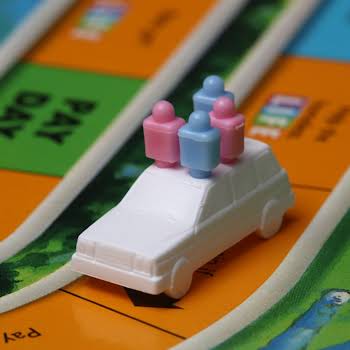
Children have the ability to push your buttons more than anyone else. How you respond to them will shape them forever. Amanda Cassidy looks at the ways to manage your domestic frustrations that are both productive and healthy.
We are told that shouting is the new spanking, in that verbal abuse, and being shouted at can harm your children’s self-esteem and create future problems when it comes to aggression.
And we feel horrible. Our suspicion was right. We are just not fit for the job.
Related: The only parenting book you’ll ever need in your life
Being caught in a moment when you are late for an appointment, there’s a lost shoe, an incident with a sister, a refusal to eat dinner, and suddenly you are bowled over with the irrational feeling that not only is your child doing it on purpose to you, but they are going to go out in the world and cause mayhem. All this points to the fact you are going to be perceived as a bad parent and you fly off the handle.
In that split second, your fight or flight response is triggered and before you know it you are off on a loud rant fuelled by the fear that you are trying in vain to raise a child to be a polite, hardworking, non-psychopath and you seem to be utterly failing.
We snap. We shout. We get caught up in a moment.
“Anger shouldn’t be the way we teach our children to deal with problems”.
Intimidating
Deep down, the rational side of us knows that being calm is much more likely to yield positive behavioural results from our children but heigh ho, counting down from 100 might be the only way we can keep calm and parent on. But don’t worry. This is normal and common.
But it doesn’t mean it is right.
Anger shouldn’t be the way we teach our children to deal with problems. We are bigger than them and they rely fully on us for everything, food, shelter, love. It is intimidating, damaging and it is never to late to change our parenting habits.
Laura Markham is a child psychologist. She believes that most issues that make us feel like lashing out has roots in our early years. “We all enter the parenting relationship wounded in some way from our childhoods, and our kids surface all those wounds. We can expect our kids to act out in ways that send us over the cliff at times. That’s why it’s our responsibility as the grownup to stay away from the cliff.”
So how do we do that?
Walk away
Markham says that the most important thing to do is not act at all when you are angry. “Your going to feel an urgent need to teach your child a lesson but that’s the emergency of the anger talking. Your child isn’t going anywhere. You can teach them later once you are calm.”
Leave the room if you have to, stick your fingers in your ears, walk away, but do not act in the moment when you are feeling that anger bubbling. It will never end well.
The double benefit of staying calm during an angry moment is that it will teach your children the importance of how to channel their emotions when they feel out of control. Be that role model they need.
Irritation
That’s all very well but what about when your child is just grating on you after you’ve had a long or hard day. We are all human and their natural exuberance can wear you down. Asking your child to stop doing something that isn’t ‘wrong’ can be confusing. Markham suggests setting limits that you can adhere to so you don’t find yourself in tricky situation.
“If they are game in which someone is likely to get hurt, stalling when you’ve asked them to do something, squabbling while you’re on the phone — you may need to interrupt what you’re doing, restate your expectation, and redirect them, to keep the situation, and your anger, from escalating”.
Only love today
The take home message here is to calm down before you take action. Either walk away of if your child is too young, run your hands under the tap, sit near them and breath deeply. Markham suggests some mantras to repeat to yourself. Say them out loud if you need to; This is not an emergency. Kids need love most when they deserve it least. He’s acting out because he needs my help with his big feelings. Only love today.
Open yourself to emotional growth and choose your battles. Are her clothes on the floor really worth the emotional fall out and damage to your relationship by shouting? Ask yourself what is the fear under the anger? Afraid she’ll grow up to be lazy and messy?
Mindfulness too can play a big part in your peaceful parenting journey too. Try to find a few minutes a day to build your mindfulness neural capacity so you can rewire your brain to have more self-control.
Lastly, enjoy your children. You are building memories together. Try to make as many as happy as possible. Keep calm and parent on.
Image via Pexels.com
Read more: The 5 stages of bringing your kids to swimming lessons
Read more: The truth about French parenting
Read more: The most honest account of parenting























